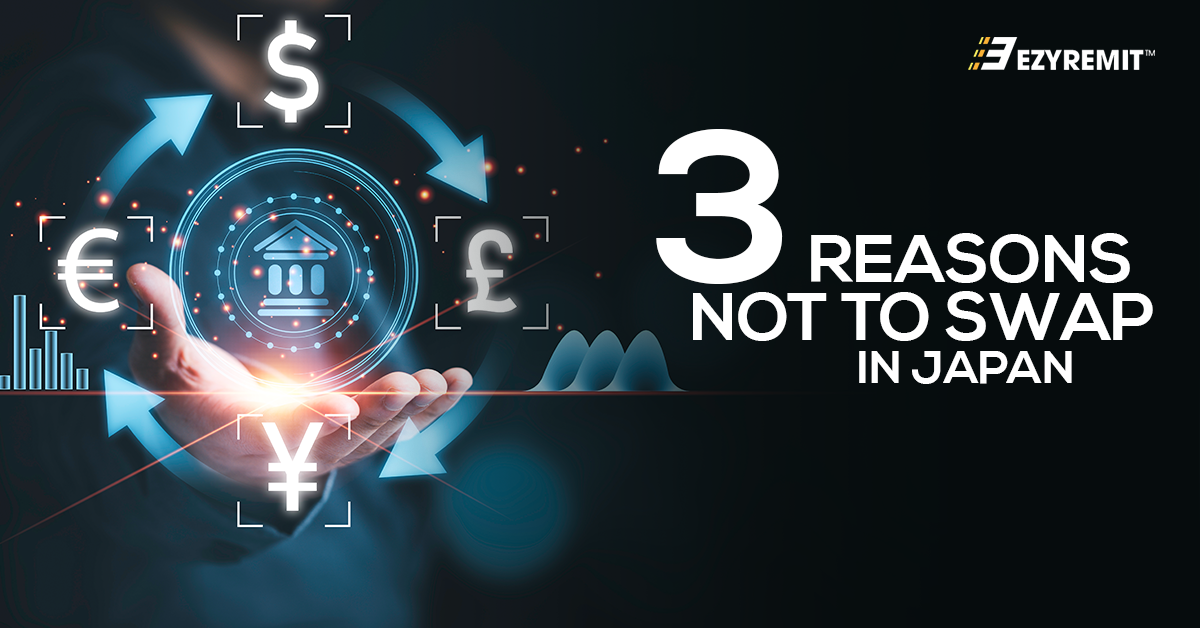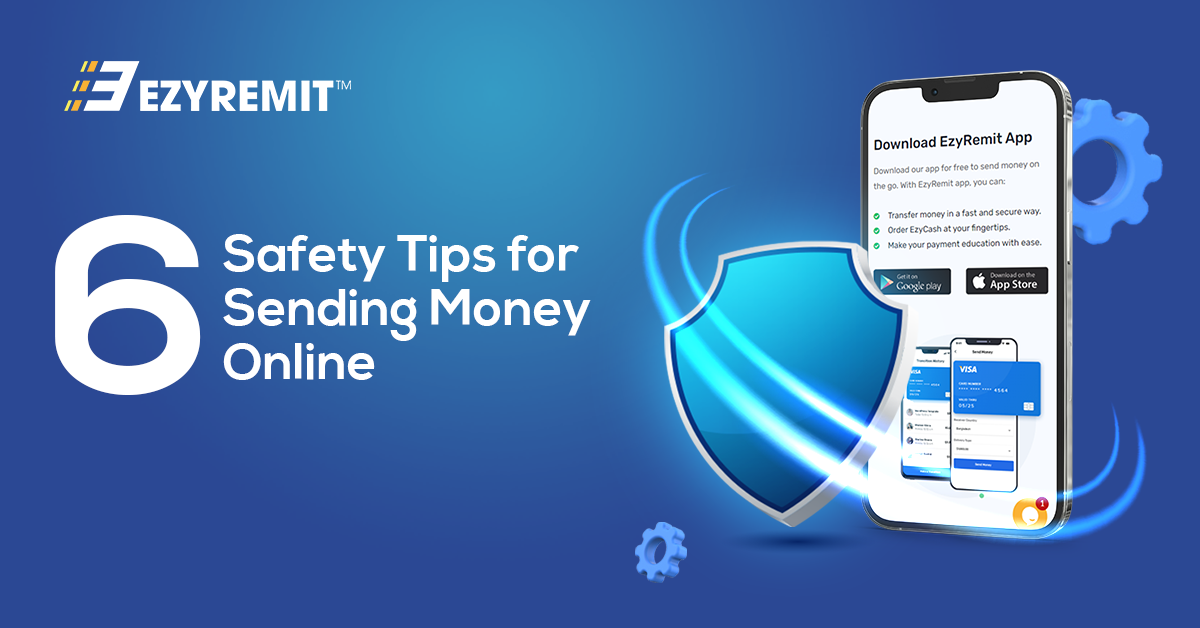Scam and Fraud of International Money Transfer
As technology advances, international money transfer has become a convenient and efficient way to send and receive funds. However, the rise in online transactions has also given rise to fraudsters and scammers who exploit unsuspecting individuals. To ensure the security of your finances, it is crucial to understand the risks and take necessary precautions. In this article, we will provide you with valuable insights and practical tips on how to protect yourself from fraud and scams when transferring money online.
Read more: Financial Health - The Key to Open Your Dream Life (ezyremit.com)
Tips to Avoid International Money Transfer Scams and Fraud
Choose Reputable Payment Platforms
When it comes to online international money transfers, selecting a reputable payment platform is paramount. Otp for well-established and trusted providers with a proven track record of secure transactions. Popular options include PayPal, EzyRemit, Venmo, and established banking institutions that offer reliable international money transfer services.
![]()
Verify the Recipient
Before initiating any money transfer, double-check the recipient's details to ensure accuracy. Verify the recipient's identity and contact information, such as email address or phone number, to avoid sending funds to the wrong person or falling victim to phishing scams.
And remember do not wire money to strangers. Wiring money is like sending cash; once you send it, you can't get it back. Scammers may ask you to wire money for various reasons, such as paying taxes, fees, or fines; claiming a prize or inheritance; helping a friend or relative in trouble; or buying something online. Always confirm the receiver's identity and legitimacy with a phone call before making any transaction online. If you sent money by wire transfer and realized it was a scam, contact the wire transfer company immediately and ask them to reverse the transaction if possible.

Be Cautious of Suspicious Emails and Messages
Fraudsters often employ phishing techniques to trick unsuspecting individuals into revealing personal information. Be wary of unsolicited emails, text messages, or social media messages that request sensitive data or prompt you to click on suspicious links. Legitimate financial institutions and payment platforms will never ask you to provide confidential information via email or text.
Phishing is when someone sends you an email, text message, or phone call pretending to be someone else, such as a bank, a government agency, or a charity. They may ask you to click on a link, open an attachment, or provide your personal or financial information. Do not respond to these messages or follow their instructions. Instead, verify the sender's identity by contacting them directly using a trusted source.
Find ways to check here: How to Identify an email message is a phishing message in Outlook - Office 365 - YouTube
Avoid International Money Transfer Scams - Shop from Encrypted Sites Only
When shopping online, look for a padlock icon or "https" in the address bar of the website. This means that the website is encrypted and protects your data from being intercepted by hackers. Avoid entering your credit card or bank account information on unencrypted websites. Protecting your online accounts is vital for preventing unauthorized access. Use strong, unique passwords and enable two-factor authentication (2FA) whenever possible.
Avoid International Money Transfer Scams - Utilize Secure Wi-Fi Networks
When conducting online transactions, ensure that you use secure Wi-Fi networks. Avoid using public Wi-Fi networks, as they can be vulnerable to hackers and eavesdroppers. Instead, use password-protected networks or consider utilizing a virtual private network (VPN) to encrypt your internet connection.
Setting strong passwords can be a useful tip, too. Use a different password for each of your online accounts, and make them long, complex, and hard to guess. You can use a password manager to create and store your passwords securely. Avoid using common or easy-to-guess passwords, such as your name, birthday, or "123456".

Exercise Caution with Personal Information
Exercise caution when sharing personal information online, especially on social media platforms. Fraudsters can exploit personal details to impersonate you or attempt to gain unauthorized access to your accounts. Be mindful of the information you post and adjust your privacy settings to restrict access to your personal data.
Meanwhile, you can turn on two-factor authentication. Two-factor authentication (2FA) is an extra layer of security that requires you to enter a code or use a device in addition to your password when logging into your online accounts. This can prevent unauthorized access to your accounts even if someone knows your password.
Regularly Monitor Your Accounts
Stay vigilant by monitoring your financial accounts regularly. Regularly review your bank statements, credit card bills, and online transaction histories to identify any suspicious activity promptly. If you notice any unauthorized transactions or irregularities, report them to your financial institution immediately.

Educate Yourself on Common Scams
Stay informed about the latest scams and fraud techniques to better protect yourself. Research and educate yourself on common online scams, such as phishing, identity theft, or advance fee fraud. Knowledge is your best defense against these threats.
Last but not least, the highest recommendation is to keep your devices and software updated. Make sure you have the latest security software and operating systems on your computers, smartphones, and other devices. This can help prevent hackers from accessing your data or installing malware on your devices.
Conclusion
While online money transfers offer convenience and efficiency, it is crucial to prioritize the security of your finances. By following the tips outlined in this article, such as choosing reputable payment platforms, verifying recipients, and securing your online accounts, you can significantly reduce the risk of falling victim to fraud and scams. Stay vigilant, exercise caution, and empower yourself with the knowledge to protect yourself and your hard-earned money when transferring funds online. The EzyRemit Remittance Service is an excellent example of a highly reputable remittance service you should consider.
EzyRemit is a money transfer service that is committed to providing legal and safe money transfers from Canada to Vietnam. EzyRemit has been granted a license from the Financial Transaction and Reports Analysis Centre of Canada (FinTRAC) of the Canadian government.
In order to achieve this, EzyRemit must ensure the integrity and legitimacy of each Canadian remittance transaction1. EzyRemit guarantees that your money is always kept safe in EzyRemit accounts under AUSTRAC supervision. Therefore, it would not be affected if we were to become insolvent. You can visit our website at https://ezyremit.com/ for more information.







